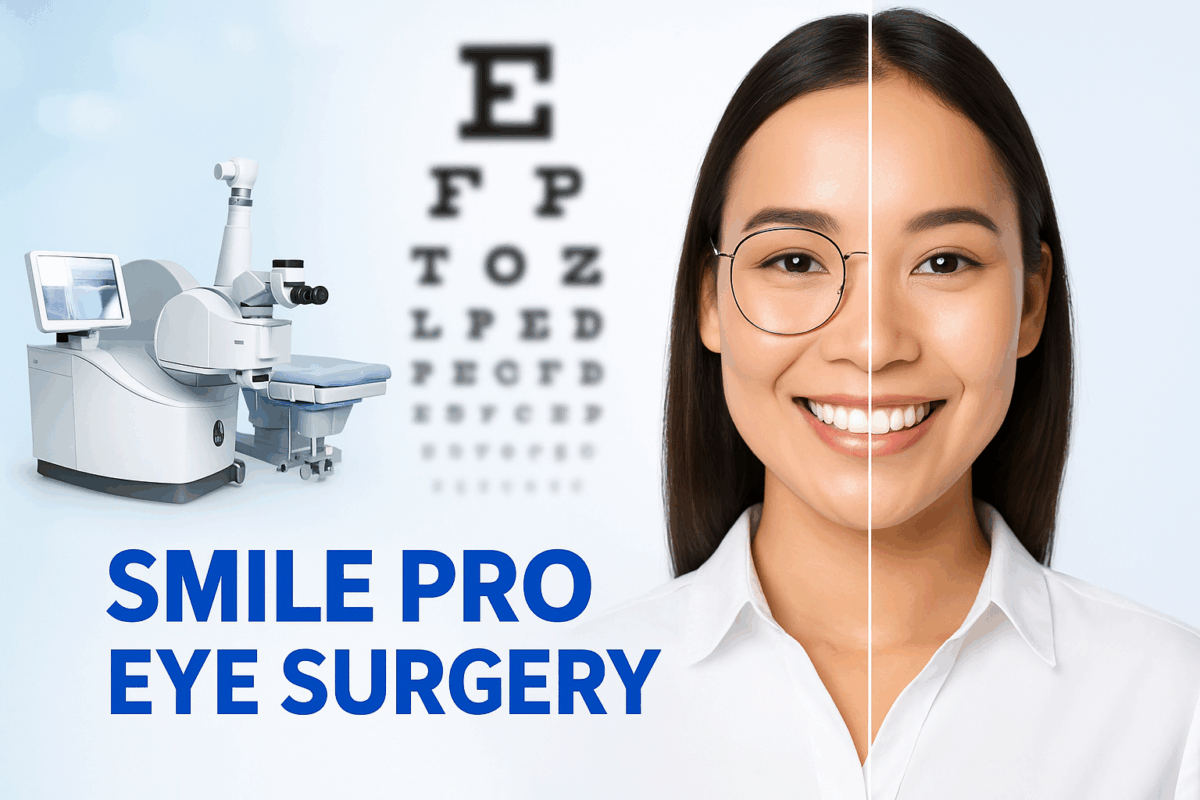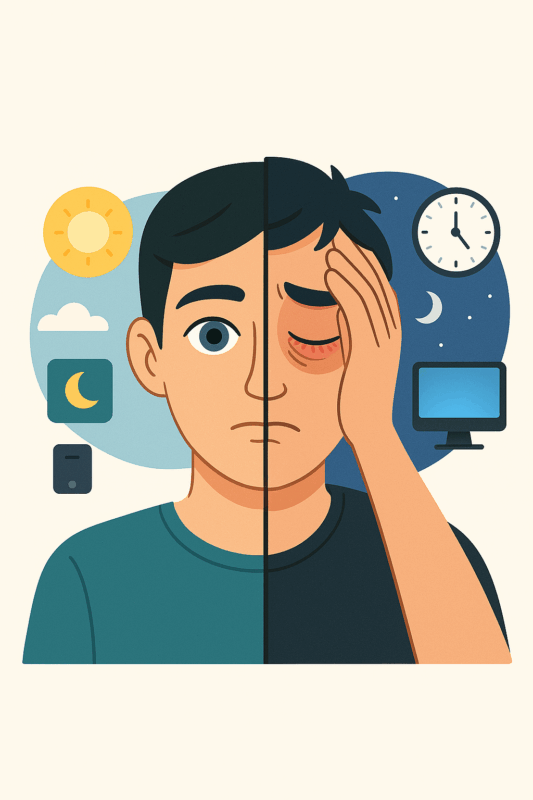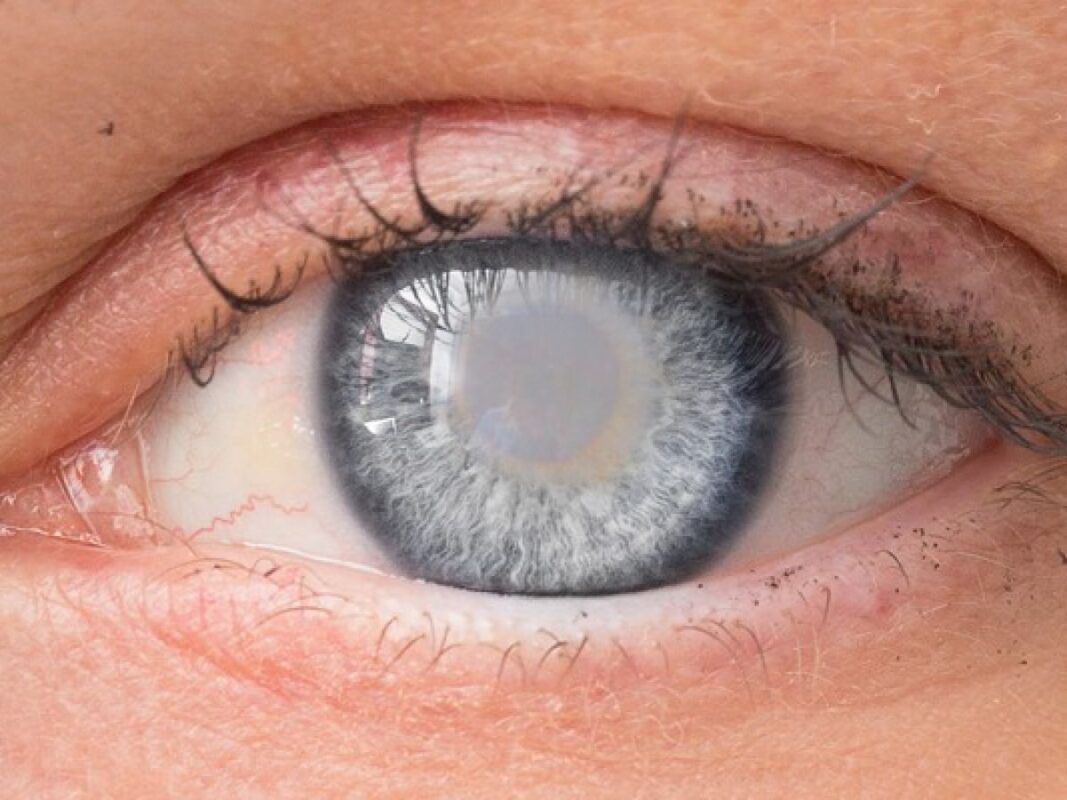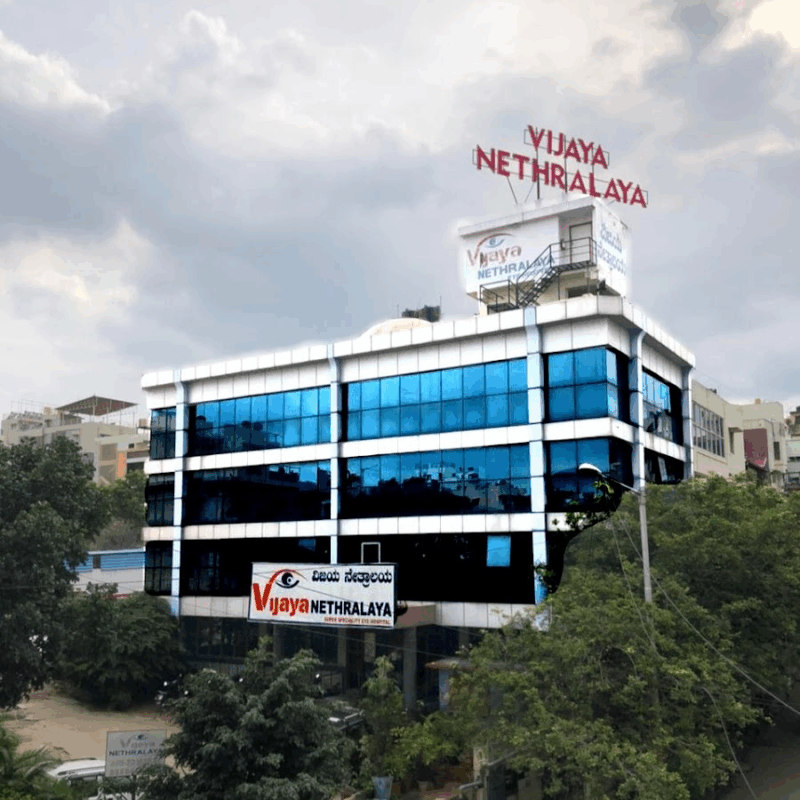At What Age Can You Have LASIK Eye Surgery?
Introduction
Ever wondered if there’s a perfect age for LASIK eye surgery? Whether you’re tired of glasses or contact lenses, LASIK is often considered a life-changing solution for vision correction. But age plays a critical role in determining if you’re eligible for this procedure. Let’s dive into the details to understand the ideal age range for LASIK and why it matters.
What is LASIK Eye Surgery?
LASIK, short for Laser-Assisted In Situ Keratomileusis, is a widely recognized laser eye surgery designed to address common vision issues. It works by reshaping the cornea, the clear, front layer of the eye, to improve how light is focused on the retina. This procedure effectively corrects refractive errors such as nearsightedness (myopia), farsightedness (hyperopia), and astigmatism, helping patients achieve clearer vision without the need for glasses or contact lenses. The procedure involves reshaping the cornea using a laser to improve how light focuses on the retina, delivering clearer vision.

Ideal Age Range for LASIK Eye Surgery
Most experts agree that the best age for LASIK falls between 20 and 40 years. This is when your eyes are typically at their healthiest, and your vision is more likely to be stable. However, specific factors, such as vision stability and overall eye health, also play a crucial role.
Minimum Age for LASIK Eye Surgery
Legal and Medical Age Limits
LASIK is approved by the FDA for individuals who are 18 years or older. This is because most people’s eyes are still developing before this age, and performing LASIK too early could lead to unpredictable results.
Reasons for the Minimum Age Requirement
Teenagers often experience ongoing changes in their prescriptions as their eyes grow. Performing LASIK during this period might require additional surgeries later to maintain optimal vision.
LASIK and Teenagers
Why LASIK Isn’t Recommended for Teens
During adolescence, hormonal changes and growth spurts can cause frequent shifts in vision. Surgeons prefer to wait until a person’s prescription has been stable for at least one to two years before considering LASIK.
LASIK in Young Adults (20-30 Years)
Young adulthood is often the prime time for LASIK. At this age, vision tends to stabilize, and individuals are less likely to develop age-related eye conditions. Many people in their 20s and 30s opt for LASIK to enhance their lifestyle and eliminate dependency on glasses or contacts.
LASIK for Middle-Aged Adults (30-40 Years)
As you enter your 30s and 40s, LASIK can still be a great option if your vision remains stable. However, some individuals in this age group may begin to experience presbyopia, a natural aging process that affects near vision.
LASIK for People Over 40 Years
Presbyopia and Its Impact on LASIK Eligibility
Presbyopia, the gradual loss of near vision, becomes more common after 40. While LASIK can correct distance vision, it cannot fully address presbyopia. Other procedures like monovision LASIK or lens replacement surgery may be recommended instead.
LASIK After 50: Is It Possible?
Risks and Benefits for Older Adults
Although LASIK is still an option after 50, factors like cataracts, dry eyes, and overall eye health must be evaluated. Many individuals in this age group may benefit more from procedures specifically designed for age-related conditions.
Factors That Affect LASIK Eligibility
- Vision Stability: A stable prescription for at least one year is essential.
- Eye Health Conditions: Conditions like glaucoma, dry eyes, or cataracts can influence eligibility.
- Lifestyle Factors: Active sports, certain professions, or hobbies may affect your decision to undergo LASIK.
Pre-Surgery Evaluations for LASIK
Before surgery, comprehensive eye exams are conducted to assess corneal thickness, refractive error, and overall eye health. These evaluations ensure the procedure is safe and suitable for you.
Risks of LASIK Surgery by Age
Age can influence the risks associated with LASIK. Younger individuals may face issues due to unstable vision, while older adults might experience complications linked to existing eye conditions.
When LASIK May Not Be Right for You
LASIK may not be suitable for individuals with severe dry eyes, thin corneas, or significant refractive errors. Alternatives like PRK or implantable contact lenses can be explored in such cases.
Conclusion
LASIK can be a transformative solution, but age plays a significant role in determining its success. The ideal age for undergoing LASIK usually falls between 20 and 40 years, as this range often ensures stable vision and good overall eye health. Always consult a qualified ophthalmologist to discuss your options and ensure the procedure aligns with your needs.
Author Details:
Dr. Sushruth Appajigowda holds a prominent position as a Cornea, Cataract, Glaucoma, and LASIK Surgeon in Bangalore. He serves as the chief Cataract and Refractive surgeon at Vijaya Nethralaya Eye Hospital, Nagarbhavi Bangalore. Renowned as one of the finest LASIK surgeons nationwide, he brings with him over 12+ years of experience across multiple LASIK platforms, including ZEISS, ALCON, SCHWIND, AMO, and Bausch and Lomb. Having successfully conducted over 5000 LASIK procedures, Dr. Sushruth holds the title of a Certified Refractive Surgeon and a Fellow of the All India Collegium Of Ophthalmology. Furthermore, he stands as a distinguished speaker at various National and International Forums, using his expertise to guide you in selecting the most suitable procedure based on your health requirements.

http://vijayanethralaya.com/link-in-bio/
FAQs
- Is there an upper age limit for LASIK?
No, but factors like eye health and the presence of cataracts are critical considerations for older adults. - Can LASIK correct presbyopia?
While LASIK doesn’t fully correct presbyopia, monovision LASIK can be an option for some individuals. - What happens if I get LASIK too young?
If performed before vision stabilizes, LASIK might lead to the need for additional corrective procedures. - Are there alternatives for those not eligible for LASIK?
Yes, options include PRK, SMILE, and implantable contact lenses, depending on your specific condition. - How long does the LASIK procedure take?
The surgery itself usually takes about 15 minutes for both eyes, but expect to spend a few hours at the clinic for preparation and recovery.












